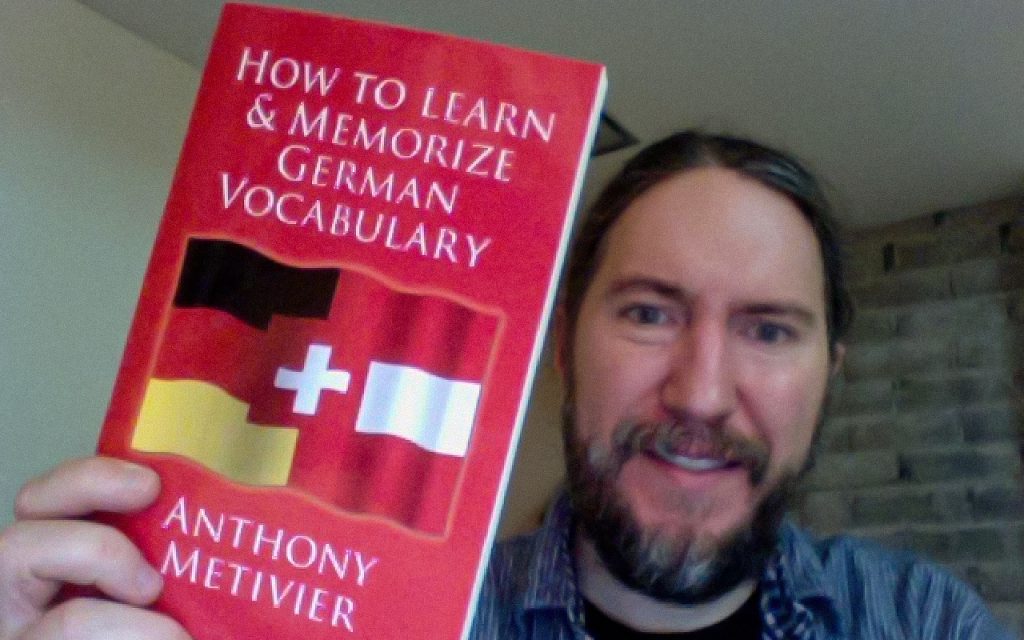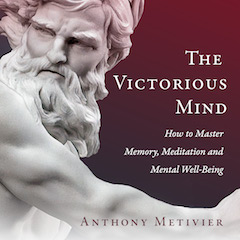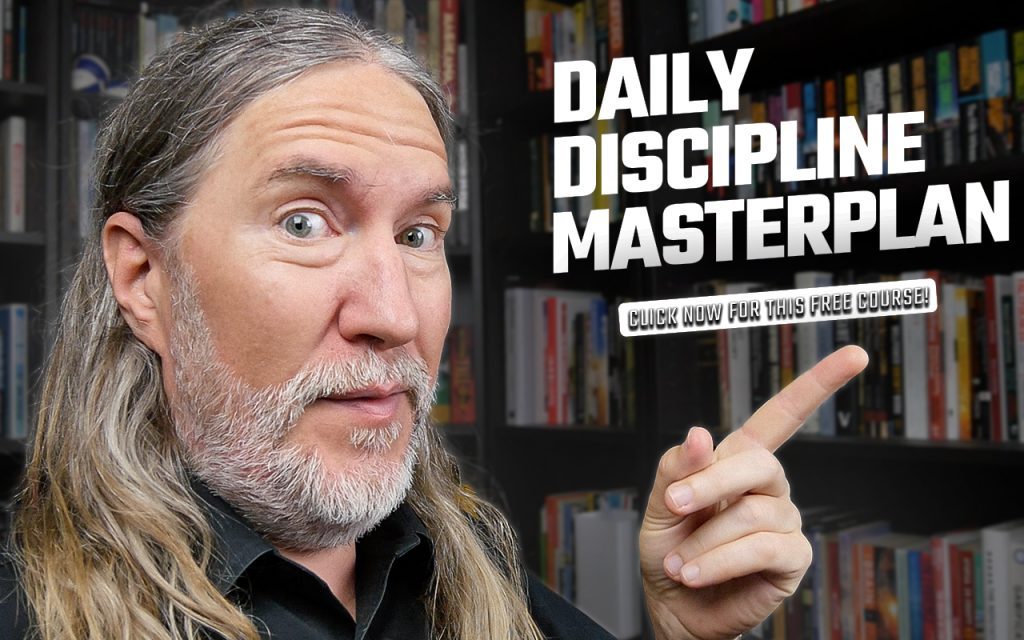I learned how to change my life with no money the hard way.
And every once in awhile, I fall flat on my face again.
More on that later…
But part of the reason is simple to summarize.
I fell prey to thinking the transformation I needed would cost a bit of coin because I’m human.
The truth is that the most powerful personal transformation tactics are free.
Or better said, the price involves:
- Time
- Energy
- Focus
- Consistency
- Ideas
And probably that’s the question you’re really asking – or need to be asking. Am I using the resources I do have and focusing them correctly towards a specific transformation?
Because when you engage in authentic self development, you are going to spend your time and energy. There’s zero way around this simple fact.
Trying to dodge these investments is a losing cause.
Especially when there’s so much information circulating online. And the only mystery that remains is why on earth aren’t more people taking advantage of it?
If you’re ready to solve this mystery, I’ll share some of my stories. And I’ll include the best tips, tactics and strategies I’ve learned when it comes to experiencing extraordinary change without spending a dime.
Ready?
Let’s dive in!
How Can I Change My Life With No Money: 5 No Fluff Tips
As you go through this list, please understand that there’s no particular order of importance.
But if one tip matters above all, it’s that so much information you need truly is freely available online. WFMU has an incredible interview with Brewster Kahle that should convince you if you’re not ready to take my word for it.
But not all of these tips will involve reading books and taking action on them. There are lots of other ways to transform yourself that doesn’t involve reading, even though developing your literacy will remain key.
One: Set A Goal Based On This Secret Knowledge
You’ve probably hear about setting “SMART” goals:
- Specific
- Measurable
- Achievable
- Realistic
- Time anchored
That’s all fine and dandy.
But as a memory expert, I can tell you that it’s missing the most important ingredient of all.
In Maps of Meaning, Jordan Peterson calls this principle “existing competence.”
See, when people set goals, they often base them on skills they do not have.
You simply cannot expect to succeed when you do that.
So if you haven’t got any money, you need to set a goal based on your existing skillset, your competence.
The Day I Became A Professional Author
To give you a practical example, I once struggled to get a job.
It was humiliating.
I imagine not being able to get a job is always humiliating, but I’d just come off a major research grant. This was the Mercator, which is one of the greatest grants you can get in Germany. To say that this accomplishment had inflated my ego would be an understatement.
Nonetheless, I found myself back home in Vancouver. Not only could I not find work despite my many “laurels,” I was also missing a tooth in the front. Because I could barely feed myself, I wasn’t able to get it fixed. I had a cheap and painful prosthesis that kept me up at night, and it bothered me even more after I started modifying it myself. I’m lucky I didn’t choke on it because it wound up falling down my throat after I made it too small.
Anyhow, I learned about Kindle books at this time. I couldn’t afford a cover, but I could write. That was my existing competence, something proven time and again. It was my writing, after all, that had gotten me through grad school and won me the Mercator.
And since there were simple graphics tools in my computer, I put together a cover for myself. Crazy, but true, that book became a bestseller, even though there was a typo on the cover for the first six months. It was only after someone pointed it out to me that I used some of the revenue to get a professional cover done.

One way or another, that book changed my life. And it worked because I set a goal based on skills that I had on hand. I just had to say “hell yeah,” and make it happen.
And now you know what to do when you have no money and no job: Base your goal on your existing competence.
Two: Wizard-Like Research
Chances are you found this post by searching Google.
But did you know that you can get much better information by using a few simple commands?
Instead of just “googling it” and dealing with what comes up on page one, it costs you nothing to try these refinements:
- intext:[search term]
- intitle:[search term]
- inurl:[search term]
These search modifications will help you skip the corporations eager and greedy for your clicks and at least give you a shot at finding more tailored information.
And here’s one that’s even better.
How I Finally Started Understanding Philosophy
Although I took logic when I was an undergrad and taught critical thinking for four years, I always regretted not taking an entire degree in philosophy.
So I decided to build my own course to follow.
And the search command I use is powerful:
syllabus + search term.
When I wanted to understand metaphysics, I found the best book titles recommended by the world’s leading professors. Sure, not all of the books are on the Internet Archive, but many were in my local library. Speaking of which, chances are you’re eligible for a library card for free. Make sure to get one and use it.
Three: Ask, Especially For Exceptions
You’d be surprised by how many people are willing to help you when you ask.
There’s no magic recipe I’m aware of for exactly how to ask for help. But it’s useful to write out what you want and why you want it as part of your self improvement journaling.
I get tons of people asking me for help, and when they clearly state what they need and why they need it, I’m enabled to help them. That’s why clarity is so important. If you confuse the person you’re asking or come across as lazy and uninformed about the topic, people are much less likely to respond.
The Library Card From Heaven
When I landed back in Canada after my brief dream career in Germany, I had no fixed address. I wasn’t paying any utility bills either and that meant I had nothing to prove I lived anywhere. Technically, I wasn’t. I was basically house sitting while trying to sort out my life.
The library was therefore reluctant to give me a library card. In fact, the New Westminster branch downright refused.
But then I got an idea I’d learned from observing some very clever people in New York.
I went back to the librarian’s desk and said in a voice dripping with respect, “I know you can’t give me a library card without proof of address. But are there any exceptions to that rule?”
It turned out there was. If you could get someone to vouch for you, you could get a library card. Did it cost time and energy?
You bet. But being able to have a relatively quiet place to access the Internet and continue my research was fundamental to how I ultimately generated an income for myself.
Four: Meditate Like A Maestro
Although I have a much better meditation practice now, I still meditated back then.
It’s so crucial for improving awareness, both of the external world and the contents of your mind.
Meditation can be as simple as sitting just to sit, as Alan Watts used to put it. Or you can dive into some of the more advanced practices I’ve been sharing for the past few years:
Happiness Beyond Thought is a book Gary Weber gives for free on his website if you want to dig deeper into the peaceful meditation style I learned from him.
My Stupid No Meditation Experiment
I remember telling Steve over at Guru Viking that I never wanted to experiment with stopping my meditation practice.
But once the idea of running such an experiment got into my head… I couldn’t stop myself from trying it.

To be honest, I was also more than a little disappointed. My book, The Victorious Mind has been a great success, more successful than all my other books combined.
But shortly after releasing it, a new health challenge emerged. I tried everything, including a serious exploration of the carnivore diet. Although cold showers helped, I think eating that way almost killed me. (Though it’s possible I have developed Alpha-Gal allergy.)
In any case, I don’t know exactly why I stopped meditating, but those were some of the factors.
And it was brutal. I’m still feeling the effects of having paused.
I’ll write more about them in the future, to be sure, but for now, here’s the point:
Not doing good things can transform your life too.
But getting back into my previous meditation routine and the positive effects it creates for me: Free.
Five: Obliterate Distractions
You know what costs absolutely nothing?
Saying no.
No to distractions like checking social media or reading the news.
I’m not opposed to keeping update and read the news myself. But I sure as hell didn’t when I needed to focus on using the limited resources I had on hand to become the architect of my future.
Obviously, online addiction is real. Johann Hari’s Stolen Focus has provided plenty of evidence of how and why it’s such a massive problem.
Myself, I digital fast at least once a day for an hour. It’s easy to leave the phone at home and get out with a book to recharge my focus. Just yesterday I outlined a new course in 40 minutes while hanging out with my wife on a park bench.
Okay, sure, the notebook and pencil cost some money. But I could have used memory techniques to memorize my ideas if need be.
Maybe you need to explore a different way of getting some time off apart from digital fasting. But the point is that it costs nothing to put the devices aside and spent some time reflecting or being out with nature. 120 minutes per week out in nature has been associated with well-being in scientific trials. I’ve seen it work magic in my life too.
And when you get successful, you still have to watch out for distractions.
Free Things That Wind Up Costing A Ton
Over the years, a lot of people have offered to help me become more successful online.
The problem is that “free” always comes with the costs we discussed above. Time, focus, energy.
Now, in the story I’m about to share, I’m overjoyed by the outcome. But there remains a fly in the ointment.
See, someone offered to help with one of my books. He was right that my original layout looked horrible. The designer I normally work with for my books wasn’t available, but in truth, I wasn’t too concerned about how the book looked. It was an experiment and I just wanted to get it out in the world to see if people liked it so I could decide whether or not to continue with the project.
As I heard my friend (and my memory may well be flawed), he said that his company produces books all the time. So I let him “gift” me a better version of the layout.
Later, when certain issues arose, he said something that struck me, though. He said that the project would be good for his graphics person because she could learn how to solve issues with ebooks.
Even though everything turned out fine, I would have preferred to have known this upfront. Because even though I practice karma yoga and letting go of the outcome, I was quite emotionally invested in the project.
But I am even more invested in having fewer thoughts and mental peace. I wound up dealing with issues I normally would not have to face with a professional book designer. And certain problems still aren’t solved. Ultimately, I regrettably wound up letting my frustration with the project overall show through and probably damaged the friendship.
It’s all my bad and there’s no way I look good in how I behaved the last time I met with this friend. Maybe we’ll never speak again, or maybe I’ll find a way to express just how much the free help cost me during a time of illness and psychological weakness.
I may even find a way tell him about akrasia, a kind of weakness of self knowledge discussed by the Greeks.
Anyhow, this episode has been on my mind a lot lately. Although I can’t say I regret the past, the book does look really cool. Even if it’s missing some standard functionality, people are generally telling me great things about it.
I’m not saying this episode of akrasia wasn’t worth it. But there’s no way of getting around the fact that aspects of the collaboration affected my in paradoxical ways. It’s a contradiction in terms, but I should have known better and I did know better but let the project take place anyway. That is the essence of akrasia.
Anyhow, my dietary issues and my no meditation experiment also influenced how I perceived everything and how I responded to things.
The Truth About Money
Some people say that freedom is free and others say that freedom is never free.
I say that freedom doesn’t actually exist.
We live in vast networks of humans, animals, plants and elements. Humanity has barely begun to understand the forces that influence us.
Cash is definitely an asset. Used well, it can make you more of it.
But I like a sentiment from John Michael Greer who says, Collapse Now and Avoid The Rush.
One major point he makes is that so many people don’t know how to heal basic wounds during emergencies. Yet, the knowledge of exactly how to do that is all over the Internet. It’s in libraries. And you can probably volunteer at your local ambulance station and learn a lot about skills related to emergency medicine.
The point is that money is a convention. We’re manipulated into thinking we need it much more than we actually do. We all fall prey to it, and to a certain extent, it really is all about the money if you haven’t got any.
But the fact of the matter is that you can dig into your current situation and work out all kinds of things to do that will improve your life.
And you might be thinking, fine writer-boy. You have a profitable “existing competence.”
There’s one problem though.
I told you only part of the story.
I also knew how to mow lawns and wash windows, which I did for years during grad school.
When I first got to Germany, I was still in grad school, and during a time of crunch, I asked my friends for suggestions and swept floors to enough to buy strings for my bass. That way I could continue playing with my band.
Years later when I wound up back in Canada, I was invited to play with the band again. Even though I was now getting some income from my first book, it was still not enough to get me back to Germany. By this time I was helping out at a school, but it still wasn’t enough to make the leap back overseas, let alone fix my missing tooth.
But I knew how to run a cash register. At one point, someone even loaned me a bit of money to get my liquor license so I could serve alcohol.
So even with a PhD under my belt, I took odd jobs to keep things together. It was months before a dime of what I made went towards developing my online career.
It’s meaningless to say that my work online has never been about the money. But it’s utterly incorrect to say that I’ve made this work about numbers either. It is a numbers game, to be sure, but most of what I create, I give away for free.
People are also free to make of it what they will, and fortunately more than enough put what I share into action. It keeps me going and as far as I’m concerned, it’s all F.R.E.E.
- Frequent practice in a state of…
- Relaxation that keeps me endlessly…
- Experimenting and…
- Engaged
If you can find something to practice, relax about the outcome as much as humanly possible and experiment, you’ll be engaged too.
And engagement cannot help but transform you.
So what do you say?
Are you ready to take some action and change your life? It really can be F.R.E.E.!
And if you’d like more help that doesn’t cost a time, pease consider going through my Daily Discipline Masterplan guide and video course. It’s also free:


